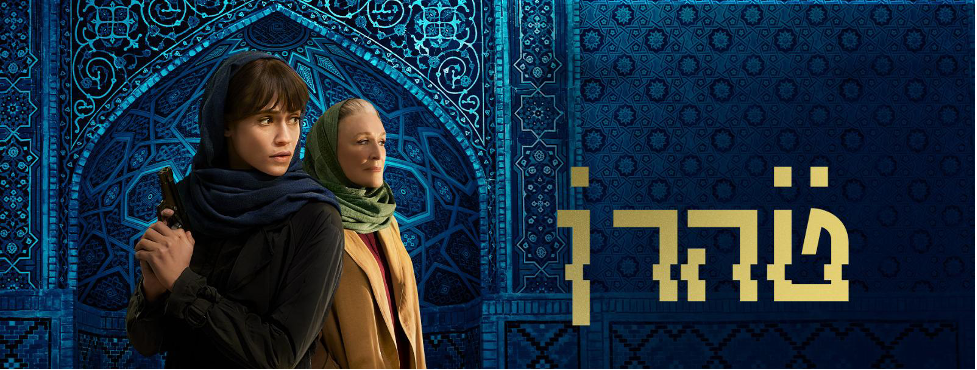Image from the series Tehran.
To say that Israeli television is deeply shaped by the sociopolitical tensions in the Middle East is an understatement. Not only does it frequently reflect regional conflicts, but following the Hamas attack on October 7, 2023, and the Gaza War, productions ground to a halt. Many industry professionals joined army reserves or participated in relief efforts, while major channels like Keshet 12 shifted heavily toward news programming. Yet, Israel’s audiovisual industry has consistently drawn inspiration from these conflicts to produce breathtaking films and series.
The rise of the Israeli television industry
Despite—or perhaps because of—this dramatic geopolitical landscape, Israeli television has achieved remarkable international success. Series like Fauda, Tehran, and Shtisel vividly portray conflicts from Israel’s perspective. Fauda follows undercover Israeli agents and exposes the complexities of the Israeli-Palestinian conflict, fostering empathy and understanding among viewers. Tehran, an espionage thriller on Apple TV+, explores intricate geopolitical tensions through the story of a Mossad agent in Iran. Shtisel, which depicts the lives of an ultra-Orthodox family in Jerusalem, became a global hit on Netflix. These international successes have paved the way for other productions like Miguel and The Lesson (both won awards at the Canneseries festival).
The current conflict’s impact on Israeli film production
The most striking example of conflict’s influence on production is Fauda. After the Hamas attacks on October 7, 2023, production was paused for months. Many cast and crew members returned to military service, and producer Matan Meir tragically lost his life serving in Gaza. The fifth season, greenlit in September 2023, underwent a complete rewrite to address the new reality. Producer Benasuly explained, “We scrapped everything and started over because it felt completely irrelevant after what had happened.”
How war shapes Israeli television narratives
War has deeply shaped Israeli television. Beyond showcasing heroes, these stories delve into the complexities of human experience, offering emotional depth while critically examining Israeli society. Our Boys explores the societal impact of violence on families and reflects broader social tensions. It highlights how personal tragedies in the Israeli-Palestinian conflict perpetuate cycles of hatred and division. Valley of Tears, set during the 1973 Yom Kippur War, portrays soldiers’ traumatic experiences while addressing internal ethnic divisions within Israel, such as those between Ashkenazi and Mizrahi Jews.
As the conflict persists, television producers walk a delicate line: providing a much-needed escape while honestly reflecting current realities. The industry must continue its dual role as a source of catharsis and a unifying force for the nation. At the same time, its mission to analyze society remains crucial—processing collective trauma, challenging perspectives, and fostering cultural dialogue are ambitious but vital goals to work toward peace in the region.For further insights or to share your thoughts on how conflict influences Israeli television, feel free to contact me at nicolas@mrnicolasderouet.com.

